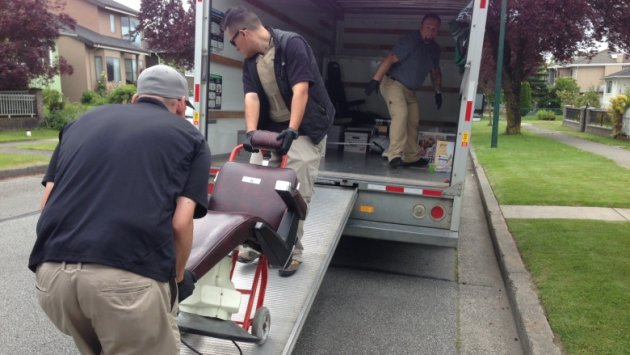?By Matthew Coutts | Daily Brew  A dentist's chair is removed from a house as part of an investigation into an alleged illegal practice. An unlicensed dentist garnered international attention last year after fleeing from British Columbia to Toronto, temporarily avoiding a Canada-wide arrest warrant after performing oral services for more than 450 patients. Tung Sheng Wu, known as the bedroom dentist, was later arrested. But he became the face of an illegal shadow industry that preys on recent immigrants and Canadians without dental coverage. Bedroom dentistry, unlicenced practices often operating out of one’s home, became a headline concern in Canada. On Monday, two new investigations were announced against people accused of illegally offering dental services. The College of Dental Surgeons of B.C. confirmed that two East Vancouver homes have been searched as part of an investigation into illegal dental practices in the city. Illegal dentistry is particularly high among immigrant communities and puts patients at risk of blood-borne illnesses, among other issues. "The College conducted surveillance on the residences, and gathered enough evidence to obtain the court’s permission to conduct the orders under the Health Professions Act," reads a statement. "We are reviewing the situation to determine whether additional steps need to be taken to protect the public."At this time the identities of the suspects have not be released by the college, which says it will return to the Supreme Court with the results of its investigation before moving forward with possible punishment. The two suspects are just the latest of several fake dentist investigations in British Columbia. Last year, three men including Wu were identified as fake dentists and issued injunctions, demanding they stop practicing dentistry. Wu had fled to Toronto after a warrant was issued for his arrest in British Columbia. It was feared that Wu, who had been previously exposed for running an unlicenced dentistry, could have infected more than 450 patients through improperly sterilized tools.Wu had been previously reprimanded in 2003 and had promised to quit practicing and leave the country. Yet a decade later, he was caught allegedly committing the same crime. It begs the question: Exactly how hard is it to stop someone from posing as a dentist?Seemingly, very. In two recent investigations, Jerome Marburg, the CEO of the College of Dental Surgeons of B.C., made public promises to ensure those injunctions were honoured.
A dentist's chair is removed from a house as part of an investigation into an alleged illegal practice. An unlicensed dentist garnered international attention last year after fleeing from British Columbia to Toronto, temporarily avoiding a Canada-wide arrest warrant after performing oral services for more than 450 patients. Tung Sheng Wu, known as the bedroom dentist, was later arrested. But he became the face of an illegal shadow industry that preys on recent immigrants and Canadians without dental coverage. Bedroom dentistry, unlicenced practices often operating out of one’s home, became a headline concern in Canada. On Monday, two new investigations were announced against people accused of illegally offering dental services. The College of Dental Surgeons of B.C. confirmed that two East Vancouver homes have been searched as part of an investigation into illegal dental practices in the city. Illegal dentistry is particularly high among immigrant communities and puts patients at risk of blood-borne illnesses, among other issues. "The College conducted surveillance on the residences, and gathered enough evidence to obtain the court’s permission to conduct the orders under the Health Professions Act," reads a statement. "We are reviewing the situation to determine whether additional steps need to be taken to protect the public."At this time the identities of the suspects have not be released by the college, which says it will return to the Supreme Court with the results of its investigation before moving forward with possible punishment. The two suspects are just the latest of several fake dentist investigations in British Columbia. Last year, three men including Wu were identified as fake dentists and issued injunctions, demanding they stop practicing dentistry. Wu had fled to Toronto after a warrant was issued for his arrest in British Columbia. It was feared that Wu, who had been previously exposed for running an unlicenced dentistry, could have infected more than 450 patients through improperly sterilized tools.Wu had been previously reprimanded in 2003 and had promised to quit practicing and leave the country. Yet a decade later, he was caught allegedly committing the same crime. It begs the question: Exactly how hard is it to stop someone from posing as a dentist?Seemingly, very. In two recent investigations, Jerome Marburg, the CEO of the College of Dental Surgeons of B.C., made public promises to ensure those injunctions were honoured.  Vladimir Shapoval, and Hua Zheng Huang were both under surveillance by The College of Dental Surgeons. In the case of Vladimir Shapoval, however, it was a matter of ensuring a "previously-issued injunction" was honoured.Shapoval's breach of a 2006 injunction, prohibiting him from practicing dentistry or claiming he was a dentist, was caught during a review ordered following Wu's arrest. He, too, is accused of ignoring the order. Illegal dentistry isn't unique to British Columbia; over the years there have been reports of street dentists being caught and punished in various provinces. The Royal College of Dental Surgeons of Ontario has a list of 14 alleged illegal practitioners awaiting prosecution and possible jail time. It is intensely difficult to chase down unregistered and illegal practitioners. Provincial dental authorities are rely almost entirely on public whistleblowers to identify suspects. If the case is taken to court, the harshest penalties can include a fine and some jail time. The Canadian Press reports that Wu, said to have received the strongest possible punishment, was found guilty of contempt of court and received a three-month sentence from his case. He was ordered to repay the dental college for the cost of the investigation, estimated at $150,000. That is as harsh as it gets; fines for those who don’t cause a cross-country manhunt unlikely reach as high.Are stronger measures necessary? When illegal practitioners are identified, the impact they have on often unsuspecting patients is discussed in the most dour terms possible. Perhaps more attention should be taken to make sure it doesn’t happen in the first place.
Vladimir Shapoval, and Hua Zheng Huang were both under surveillance by The College of Dental Surgeons. In the case of Vladimir Shapoval, however, it was a matter of ensuring a "previously-issued injunction" was honoured.Shapoval's breach of a 2006 injunction, prohibiting him from practicing dentistry or claiming he was a dentist, was caught during a review ordered following Wu's arrest. He, too, is accused of ignoring the order. Illegal dentistry isn't unique to British Columbia; over the years there have been reports of street dentists being caught and punished in various provinces. The Royal College of Dental Surgeons of Ontario has a list of 14 alleged illegal practitioners awaiting prosecution and possible jail time. It is intensely difficult to chase down unregistered and illegal practitioners. Provincial dental authorities are rely almost entirely on public whistleblowers to identify suspects. If the case is taken to court, the harshest penalties can include a fine and some jail time. The Canadian Press reports that Wu, said to have received the strongest possible punishment, was found guilty of contempt of court and received a three-month sentence from his case. He was ordered to repay the dental college for the cost of the investigation, estimated at $150,000. That is as harsh as it gets; fines for those who don’t cause a cross-country manhunt unlikely reach as high.Are stronger measures necessary? When illegal practitioners are identified, the impact they have on often unsuspecting patients is discussed in the most dour terms possible. Perhaps more attention should be taken to make sure it doesn’t happen in the first place.

 Vladimir Shapoval, and Hua Zheng Huang were both under surveillance by The College of Dental Surgeons. In the case of Vladimir Shapoval, however, it was a matter of ensuring a "previously-issued injunction" was honoured.Shapoval's breach of a 2006 injunction, prohibiting him from practicing dentistry or claiming he was a dentist, was caught during a review ordered following Wu's arrest. He, too, is accused of ignoring the order. Illegal dentistry isn't unique to British Columbia; over the years there have been reports of street dentists being caught and punished in various provinces. The Royal College of Dental Surgeons of Ontario has a list of 14 alleged illegal practitioners awaiting prosecution and possible jail time. It is intensely difficult to chase down unregistered and illegal practitioners. Provincial dental authorities are rely almost entirely on public whistleblowers to identify suspects. If the case is taken to court, the harshest penalties can include a fine and some jail time. The Canadian Press reports that Wu, said to have received the strongest possible punishment, was found guilty of contempt of court and received a three-month sentence from his case. He was ordered to repay the dental college for the cost of the investigation, estimated at $150,000. That is as harsh as it gets; fines for those who don’t cause a cross-country manhunt unlikely reach as high.Are stronger measures necessary? When illegal practitioners are identified, the impact they have on often unsuspecting patients is discussed in the most dour terms possible. Perhaps more attention should be taken to make sure it doesn’t happen in the first place.
Vladimir Shapoval, and Hua Zheng Huang were both under surveillance by The College of Dental Surgeons. In the case of Vladimir Shapoval, however, it was a matter of ensuring a "previously-issued injunction" was honoured.Shapoval's breach of a 2006 injunction, prohibiting him from practicing dentistry or claiming he was a dentist, was caught during a review ordered following Wu's arrest. He, too, is accused of ignoring the order. Illegal dentistry isn't unique to British Columbia; over the years there have been reports of street dentists being caught and punished in various provinces. The Royal College of Dental Surgeons of Ontario has a list of 14 alleged illegal practitioners awaiting prosecution and possible jail time. It is intensely difficult to chase down unregistered and illegal practitioners. Provincial dental authorities are rely almost entirely on public whistleblowers to identify suspects. If the case is taken to court, the harshest penalties can include a fine and some jail time. The Canadian Press reports that Wu, said to have received the strongest possible punishment, was found guilty of contempt of court and received a three-month sentence from his case. He was ordered to repay the dental college for the cost of the investigation, estimated at $150,000. That is as harsh as it gets; fines for those who don’t cause a cross-country manhunt unlikely reach as high.Are stronger measures necessary? When illegal practitioners are identified, the impact they have on often unsuspecting patients is discussed in the most dour terms possible. Perhaps more attention should be taken to make sure it doesn’t happen in the first place.
